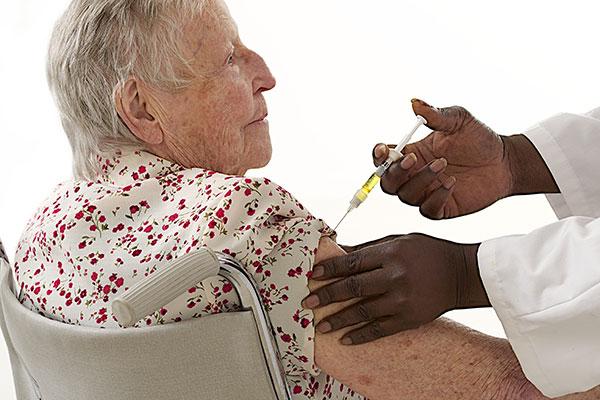What is Pneumonia?
Pneumonia is caused by bacteria that can spread from person to person through close contact. It can cause ear infections, and it can also lead to more serious infections of the lungs, blood, and brain or spinal cord.
Anyone can get pneumonia, but children under 2 years of age, people with certain medical conditions, adults over 65 years of age, and cigarette smokers are at the highest risk.
About 18,000 older adults die each year from pneumonia in the United States.
Treatment of pneumonia infections with penicillin and other drugs used to be more effective. But some strains of the disease have become resistant to these drugs. This makes prevention of the disease, through vaccination, even more important.
Pneumococcal polysaccharide vaccine (PPSV23) - Pneumovax®
Pneumovax® protects against 23 types of pneumococcal bacteria. It will not prevent all pneumonias.
Pneumovax® is recommended for:
- All adults 65 years of age and older,
- Anyone 2 through 64 years of age with certain long-term health problems,
- Anyone 2 through 64 years of age with a weakened immune system,
- Adults 19 through 64 years of age who smoke cigarettes or have asthma.
Most people need only one dose of Pneumovax®. A second dose is recommended for certain high-risk groups. People 65 and older should get a dose even if they have gotten one or more doses of the vaccine before they turned 65.
PCV13 vaccine – Prevnar 13®
Prevnar 13® protects against 13 types of pneumococcal bacteria.
Prevnar 13® is routinely given to children at 2, 4, 6, and 12–15 months of age. It is also recommended for children and adults 2 to 64 years of age with certain health conditions, and for all adults 65 years of age and older.
How can I learn more?


